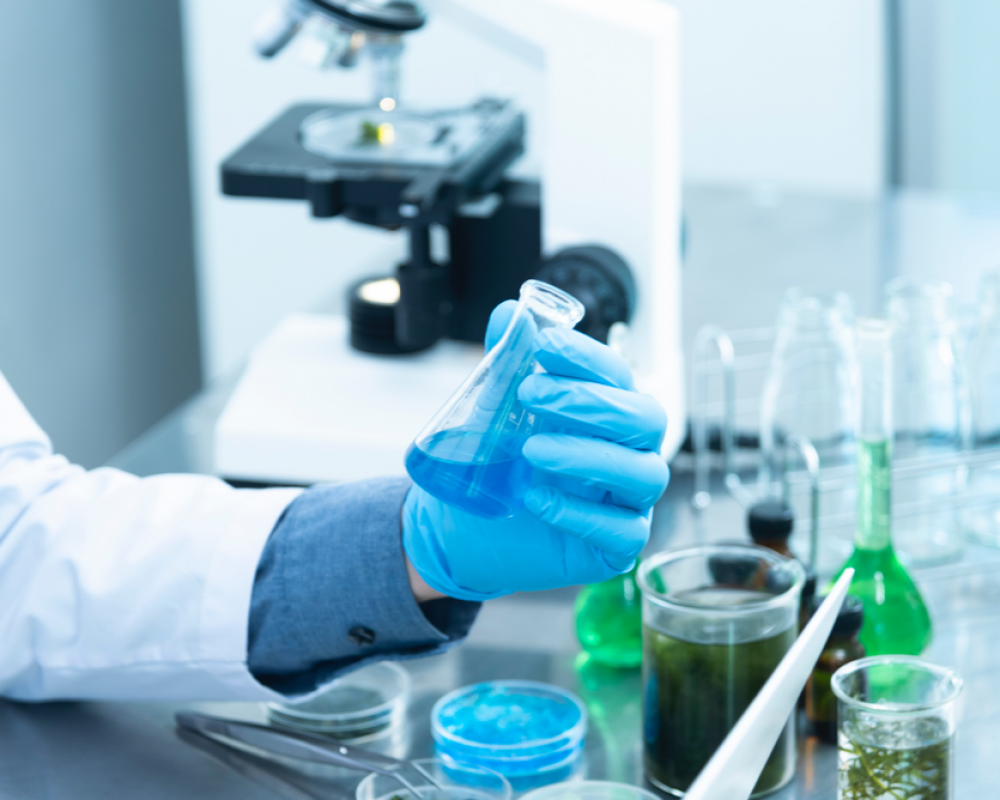
Turning waste cellulose into a new generation biodegradable bio-solvent
The Biorenewables Development Centre (BDC) and Innovation Cluster BioVale have supported Circa Group to grow and develop the commercial potential for their bio-based, biodegradable, non-toxic solvent.
Developing multiple sustainable bio-based chemicals from levoglucosenone
Established in 2006 Circa is a renewable chemicals company with scalable technology to produce highly valuable bio-based chemicals. Their Furacell™ production process takes abundant waste biomass and makes a platform molecule, levoglucosenone (LGO). From this versatile building block, multiple sustainable bio-based chemicals have been developed to replace unsustainable fossil-based chemicals in a wide range of applications.
Working with the researchers in the Green Chemistry Centre of Excellence (GCCE) at the University of York, Circa developed the idea of converting levoglucosenone to an industrial solvent which resulted in the invention of a novel bio-based, biodegradable, non-toxic solvent called Cyrene™. The GCCE is a world-leading academic facility for pioneering pure and applied green and sustainable chemical research through its technology platforms on microwave chemistry, alternative solvents, clean synthesis and bio-based mesoporous materials.
Cyrene™, derived from LGO, is greener, safer and often performs better than traditional toxic solvents used in agrochemicals, coatings, pharma, and textile recycling applications as well as many more industrial processes.
Cyrene™ is now approved by the European Chemicals Agency, current registration REACH Annex IX, which enables the company to manufacture or import up to 1000 tonnes per year of this product in the European Union.
Circa Renewable Chemistry Institute
Following on from this successful collaboration, the University of York and Circa have established the Circa Renewable Chemistry Institute to enable the take-up of Circa’s innovative bio-based chemicals through specific application development and process support. Their mission is to advance and promote the development and commercialisation of renewable chemistry, processes and products that enable the chemical industry to transition to commercially viable, sustainable, and environmentally responsible bio-based products at an industrial scale.

Mark Gronnow, Process Development Unit Lead at the BDC explains; Circa have worked with the BDC over the last 7 years to test manufacturing methods, purification and new applications for Cyrene™ and other LGO derived compounds via our open-access research, development and demonstration scale-up facilities. Going forward our exciting collaboration continues; I am on the board of the Renewable Chemistry Institute to offer support and guidance on pilot scale trials for new applications of Cyrene™.
Professor James Clark, Department of Chemistry, University of York added; The Circa Renewable Chemistry Institute will carry out cutting edge research on commercially relevant platform molecules and their production to further the development of more sustainable chemicals and products. Developing great products like Cyrene™ is just the beginning - the transition to renewable chemistry requires an open collaborative environment where peers can problem solve and break through barriers together. There are commercial and reputational rewards for the early adopters and we invite them to be part of this important work.
Cyrene™ - greener, safer and often performs better
Cyrene™ - use in applications such as agrochemicals, coatings, pharma, textile recycling
The BDC is home to the BioVale Innovation Cluster, an initiative that promotes and develops the circular bioeconomy across Yorkshire and the Humber. Circa’s connections with BioVale have helped catalyse Cyrene’s commercialisation by linking Circa with end users, distributors and investors. This has included participation in BioVale trade missions to the BioKet conference (Strasbourg) and World Biomarkets (Amsterdam,) as well as promotion through BioVale’s bio-based sessions at ChemUK.
